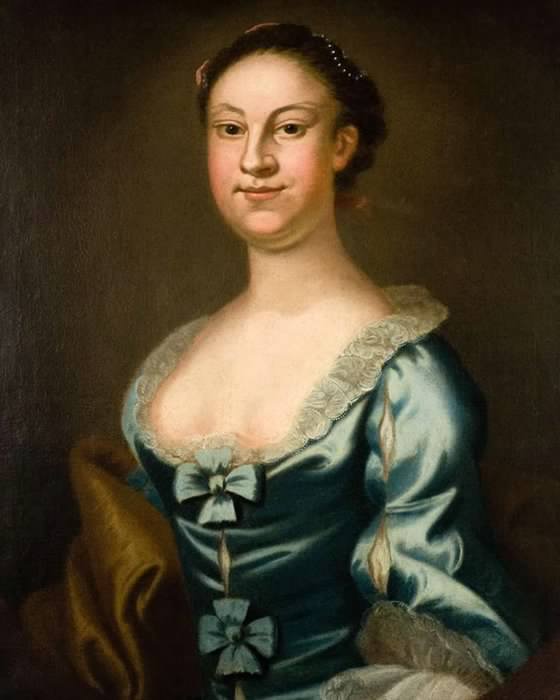Betty Washington Lewis married Fielding Lewis, a widower with three children, on 7 May 1750 . The couple had eleven children with six surviving to adulthood and the family included:
Step-son John Lewis born 22 June 1747 in Fredericksburg, Virginia and died 23 November 1825 in Russellville, Logan County, Kentucky. He married five times. During his lifetime, he spent time in Fredericksburg , Virginia Spotsylvania County Culpeper County Loudoun County , Virginia Logan County , Kentucky
Step-daughter Frances Lewis, of whom very little is known. She was godmother to Betty Lewis.
Fielding Lewis, the eldest son of Betty Washington and Fielding Lewis, was born 14 February 1751 in Spotsylvania County , Virginia 5 July 1803 in Spotsylvania County , Virginia Fairfax County , Virginia Frederick County Clarke County Fauquier County , Virginia Frederick County Virginia
George Lewis was born 14 March 1757 in Fredericksburg , Virginia 13 November 1821 in King George County Virginia Fredericksburg , Virginia Spotsylvania County Frederick County Clarke County King George County Virginia 1792 in addition to growing crops. He was a revolutionary war patriot. George Lewis served as aide-de-camp to George Washington until his marriage.
Betty Lewis, the only daughter to survive, was born 23 February 1765 in Fredericksburg , Virginia 9 April 1830 in Clarke County , Virginia 7 May 1781 . During her lifetime, she and her husband lived in Fredericksburg , Virginia Spotsylvania County Albemarle County Stafford County Frederick County Clarke County Culpeper County , Virginia Culpeper County , Virginia
Lawrence Lewis was born 4 April 1767 in Spotsylvania County , Virginia 20 November 1839 in Fairfax County , Virginia Fredericksburg , Virginia Essex County , Virginia Spotsylvania County Fredrick County Clarke County , Virginia Fairfax County , Virginia Clarke County , Virginia Mount Vernon
Robert Lewis was born 25 June 1769 in Fredericksburg , Virginia 1 January 1829 in Fredericksburg , Virginia Fredericksburg , Virginia Spotsylvania County Stafford County Fauquier County Frederick County Virginia New York
Howell Lewis was born 23 December 1771 in Culpeper County , Virginia 26 December 1822 in West Virginia Fredericksburg , Virginia Culpeper County Clarke County , Virginia Philadelphia , Pennsylvania Mount Vernon
Betty Washington Lewis welcomed her brother Samuel Washington’s orphaned daughter Harriot Washington into her home during the years 1792 until 1796 when she married Andrew Parks, a merchant in Fredericksburg , Virginia Washington 2 August 1776 in Berkeley County , Virginia 3 January 1822 in Kanawha County , Virginia
